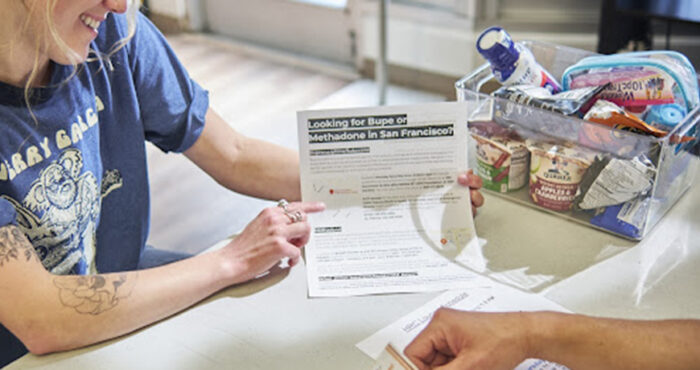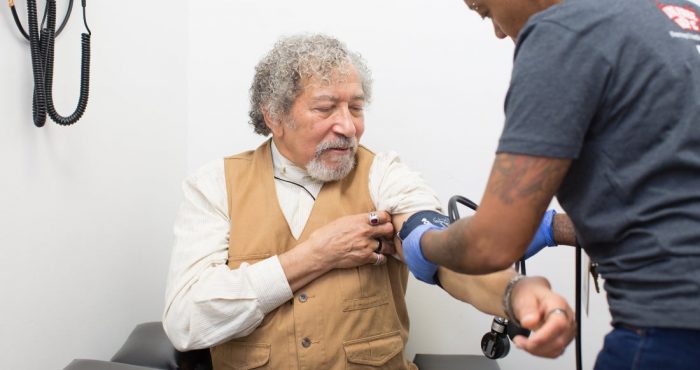In 2013, BETA published an article about viral suppression and having an undetectable viral load. A lot has changed since the original article was published.
To keep us up-to-date, Barry Zingman, MD, the medical director of the AIDS Center at Montefiore Medical Center and professor of medicine at Albert Einstein College of Medicine joins us to answer our questions about what it means to be undetectable, the risk of HIV transmission, and more.
How do I know if my viral load is undetectable?
The only way to know if your viral load is undetectable is through an HIV viral load or HIV RNA test that your doctor or health care provider can do. You will need to have your blood drawn for this test, and the test will determine the level of virus in your blood that day. If the level of virus in your blood is below the limit of detection of the test, then we say your virus is “undetectable.”
If my viral load is undetectable, can I transmit HIV to other people?
I’m very happy to say that we know the answer to this. If you are undetectable, and have been on HIV medications for at least six months, and you continue that treatment, the risk of transmitting HIV is effectively zero.
This finding has been well-established over the last six to seven years by multiple research studies. After studying thousands of couples, over many years, research has shown that if an HIV-positive person is on effective HIV medications for at least six months, is undetectable, and stays on their HIV medications, they will not transmit HIV to other people.
Does this apply to people having anal sex?
Yes. If a person living with HIV is taking HIV medication, and has been undetectable for at least six months, they will not transmit HIV to anal sex partners (and it doesn’t matter whether they are the top or the bottom).
We know this is true from research studies with thousands of episodes of people having anal sex, with many years of follow-up.
What about oral sex?
Unless there is blood in the mouth, there is no risk of HIV being transmitted during oral sex anyway. So if you are living with HIV, and are undetectable, you will not pass on HIV to a partner during oral sex.
If I’m undetectable, is there a chance my viral load will become detectable again?
Being undetectable does not mean that you are cured of HIV. There are three instances when your HIV viral load might come back and be detectable again.
The most common instances are so-called viral “blips.” Blips are when your HIV levels become slightly detectable, but at a very low level, and then goes back to being undetectable again. People may experience viral blips when they take their HIV medications every day. Viral blips are usually due to issues in the lab, such as some slight error in the test or in the test conditions in the lab. Occasionally they are due to a slight but true increase in the viral load due to a stress such as an illness or a vaccine. Viral blips, in which the viral load goes right back down to undetectable soon, are considered harmless. There is no appreciable chance that a person with a viral blip will transmit HIV to another person.
People also become detectable when they stop taking their HIV medications or take them only partially. It may take between a week to several weeks after stopping HIV treatment for HIV to become detectable again, but people will see the levels of virus in their body go up to detectable levels.
The least likely scenario for a person to go from being undetectable to detectable these days is if the virus in their body becomes resistant to the medications they are taking. (“Resistant” means the medications have stopped working against HIV.) This is very rare for people who take their HIV medications every day, because the HIV medications we prescribe these days (and at least for the last 10 – 15 years) are very powerful and control HIV very well if taken properly. Resistance is no longer something that is expected to occur, no matter how long a person is treated, as long as they take their medicine well.
What if I miss one dose, will my viral load become detectable again?
If you are undetectable, and have been taking your medications every day recently, your viral load will very likely stay undetectable even if you miss one dose. The HIV medications are so good these days that it can take a week or even sometimes up to several weeks or more for people’s viral loads to become detectable after medications are stopped.
Should an HIV-negative person with an undetectable, HIV-positive partner take PrEP?
People in this situation should make a decision about PrEP after learning about it, thinking about their own particular situation, and figuring out what they’re comfortable with.
Consider things like:
- Are you monogamous with your partner?
- Do you know if your partner is monogamous with you?
- Does your partner share their viral load information with you? Or not?
- Do you know if your partner is getting regular medical care? Or are you unsure about that?
The more uncertainty there is in answering these questions, the more I would suggest to the person that they consider PrEP. But if someone is in a monogamous relationship with one HIV-positive person, and that person has been taking HIV medications for at least six months and is undetectable, I’m not sure of any reason why they would need PrEP. But the more uncertainty there is, whether or not it’s uncertainty related to their partner’s sexual practice or to whether they are undetectable, I would recommend PrEP as an effective method of HIV prevention.
There is also sometimes a psychological benefit to being on PrEP. It can make people feel like they’re just adding a second layer of protection, and some people might feel better about taking PrEP for this reason.
Do I still need to use condoms if I’m undetectable?
HIV medicines (antiretrovirals) only prevents HIV transmission—they don’t prevent other sexually transmitted infections (STIs), either from you to others, or others to you. Condoms are still very useful, especially if you’re having sex with multiple partners or in situations when you don’t know if your partner could have a detectable HIV viral load or might have an STI. I do recommend that people strongly consider using condoms—but it’s often for the other STIs or due to an unknown HIV status of their partners.
What does “Undetectable equals Untransmittable” (U=U) mean?
U=U is the name of a public health campaign that has really taken off in the last year and is accepted and endorsed by organizations worldwide. It shares the message that people who are undetectable do not transmit HIV to other people.
This campaign promotes key medical information that is important for people living with HIV to know, but it is also an important concept that reduces HIV stigma in the community. The phrase really encompasses an idea that people who are living with HIV can be free from HIV stigma, and can live their lives more fully, with less fear, worry, and inhibition.










